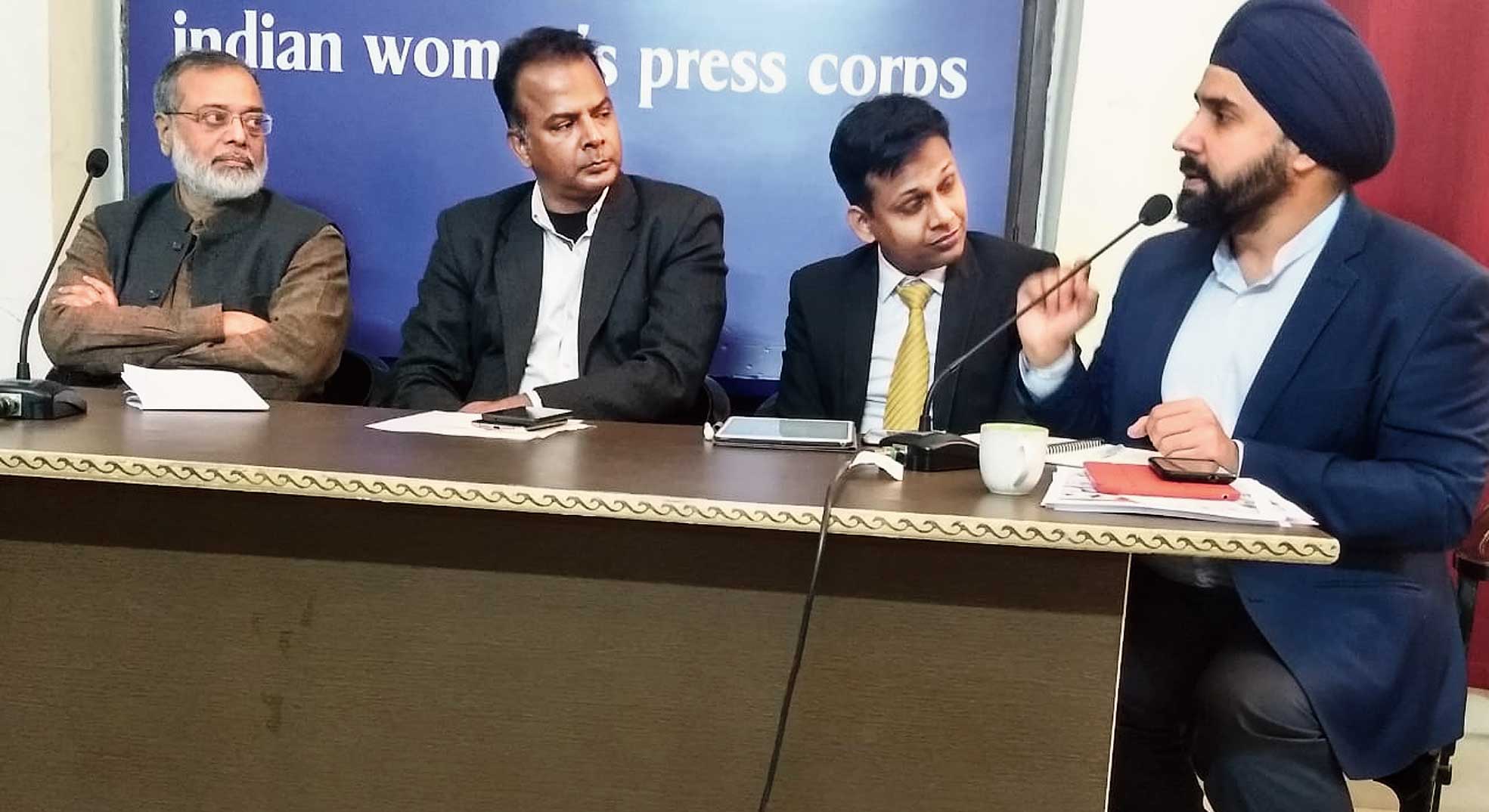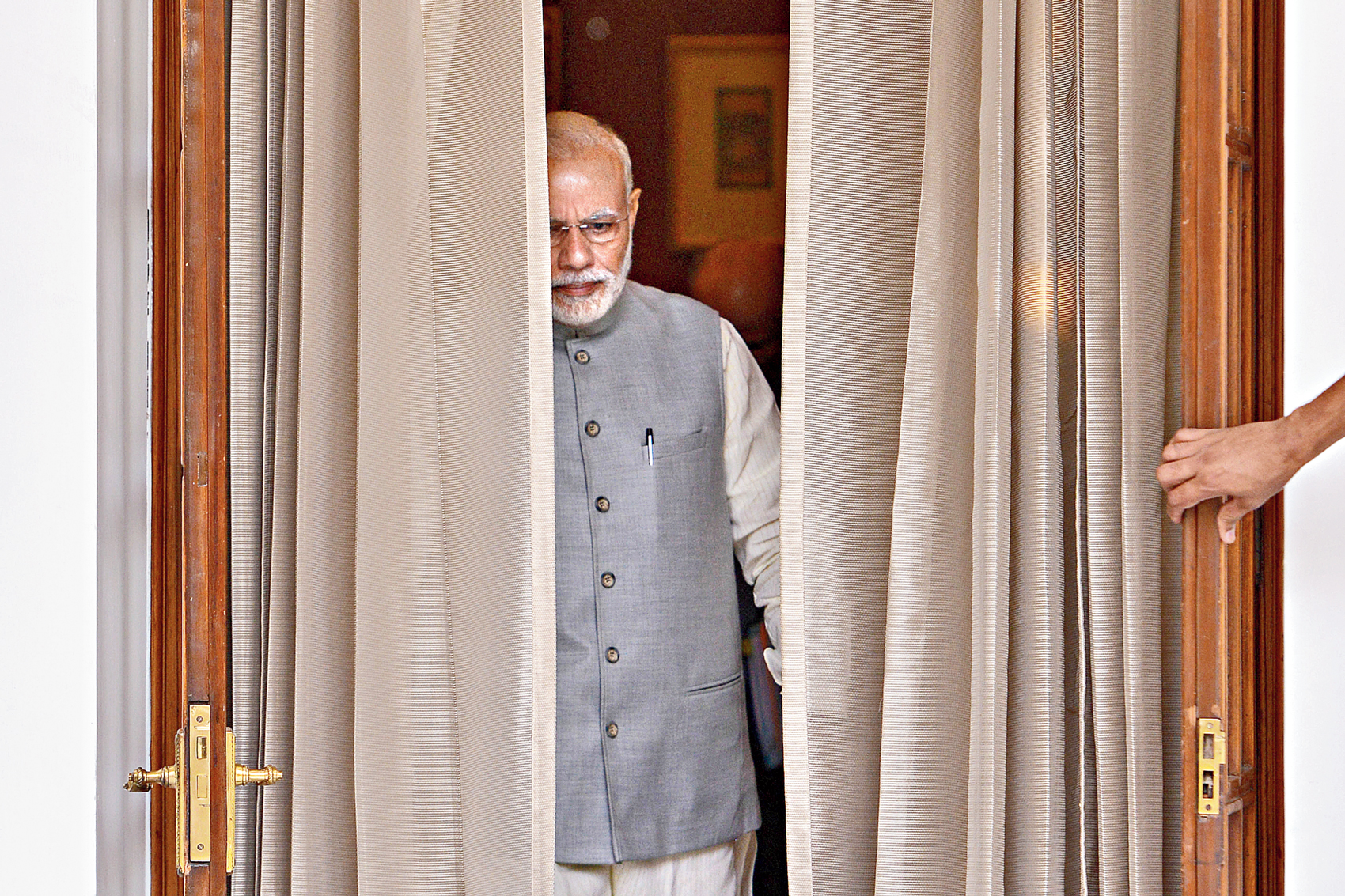Legal activists and Internet privacy experts on Saturday expressed concern about what they said were attempts by the government to intercept and control Internet data.
“Today, each application on our smartphones has information of what we talk (about), where we walk — it is a database of intentions,” the Internet Freedom Foundation’s executive director, Apar Gupta, told reporters and the Indian Women’s Press Corps.
“The information which is gathered about us — and is now operationalised by this notification in favour of 10 central agencies — requires a higher threshold, a higher standard from what were first enunciated by the Supreme Court in the PUCL (People’s Union for Civil Liberties) judgment in 1996 December.”
That judgment had observed that illegal phone-tapping by the government was an invasion of privacy and had set guidelines for when and how phones can be tapped.
Last month, the Union home ministry issued a gazette notification authorising nine central agencies and the Delhi police commissioner to “intercept, monitor and decrypt” information transmitted by or stored in any computer.
Gupta’s comments came days after Mozilla, the not-for-profit entity behind the web browser Firefox, said the draft Information Technology (Intermediary Guidelines) Rules, 2018, run counter to an apex court order saying only court directions can compel a company to remove online content.
“You need a legal framework to protect people’s rights online (to ensure that) surveillance doesn’t happen based on babus issuing orders — which is what is happening today — and babus reviewing babus, which is supposed to happen but (even that) doesn’t happen,” Access Now’s policy director, Raman Jit Singh Chima, said.
He advocated a regime “where independent voices — at least serving judges — check what the government is doing in terms of the wiretap orders which are being issued”, adding: “We are one of the few democracies that don’t do this.”
Chima went on: “The government of India has not done anything (to regulate) data collection by the private sector…. In reality, India is one of the few countries where so many people are online and the government (has) never been able to censure or force (a) remedy on any of these big tech players for what’s happening. All the privacy notifications and data breach notifications you receive today is because of the EU and the US.
“We need a strong privacy law which regulates the private sector and regulates and provides a remedy for illegal government surveillance. That’s good in a federal country because it makes it clear what Delhi or the state capitals are doing and increases trust. Today, law-enforcement agencies also spy on each other because they don’t trust each other and they don’t want to share their data.”
Free Software Movement of India president Prabir Purkayastha said: “Before the 2014 elections and after, what was the relation between a political party and Facebook? So, can they affect your election? Yes.”
He added: “A three to five per cent voting change is not something that is really major for a platform to do. Experiments seem to show that you can shift the vote by up to 20-25 per cent if the platforms intervene in a particular way.
“We (face a) threat not only (from) the government but even (from) the platform being in bed with the party or the government in power.”













